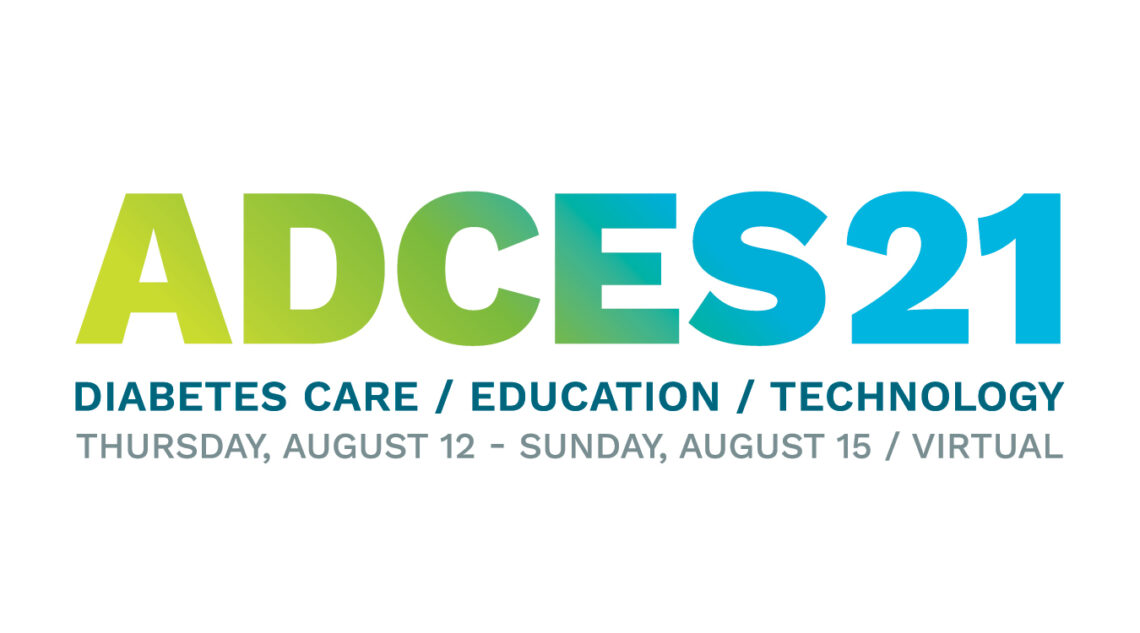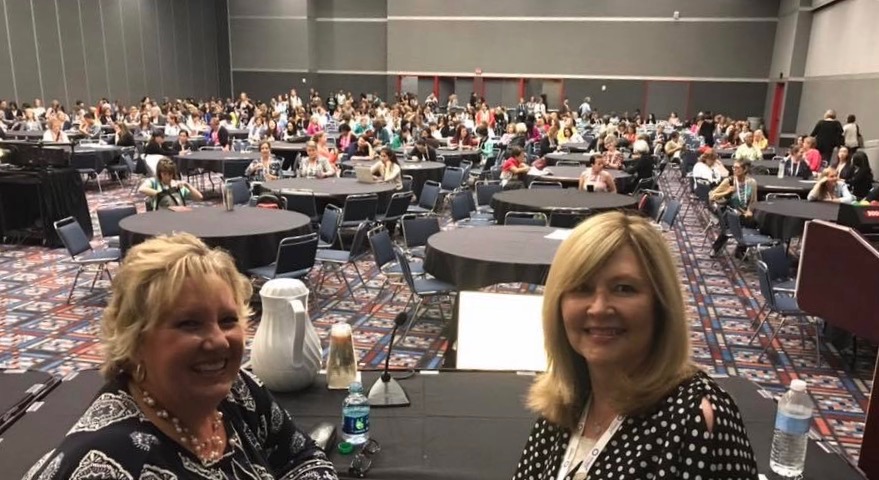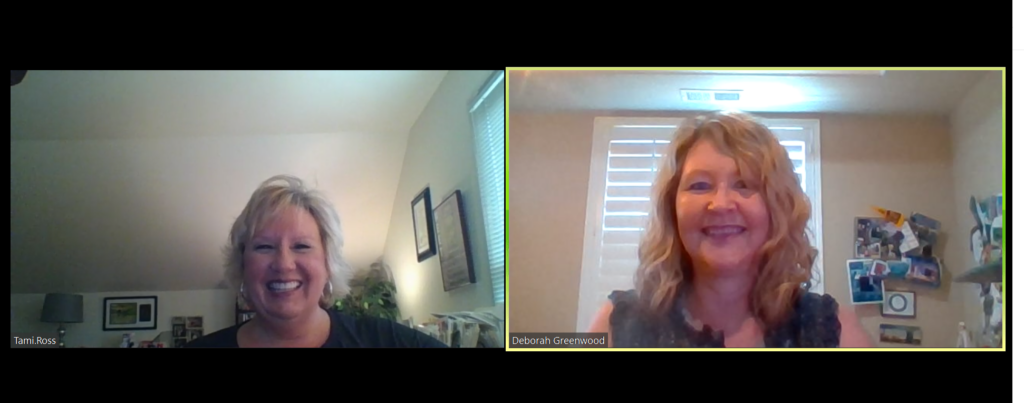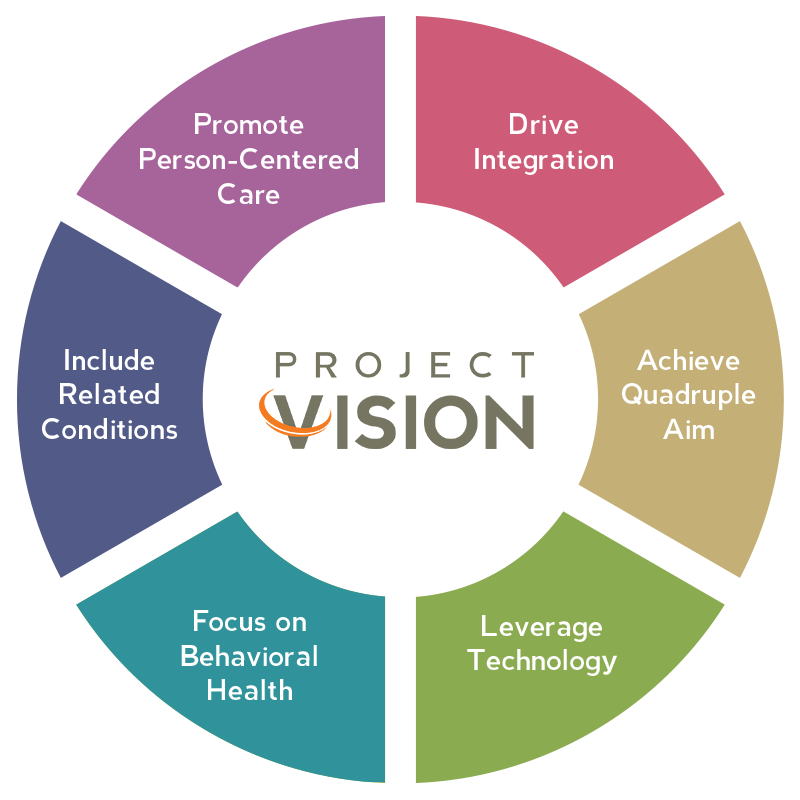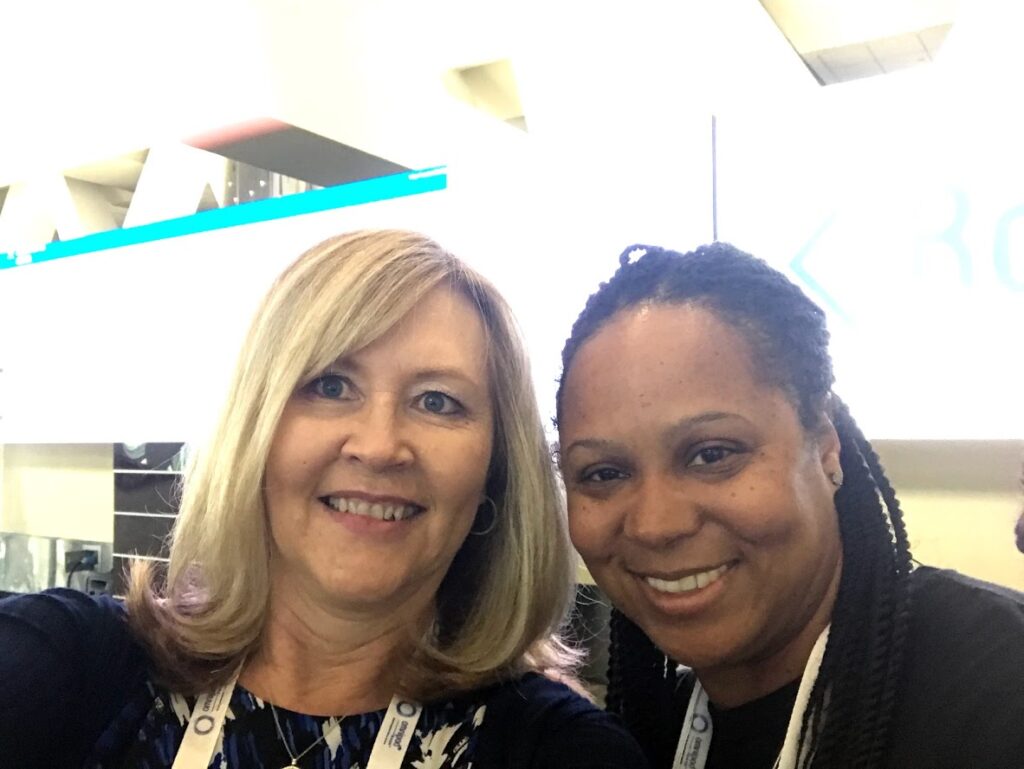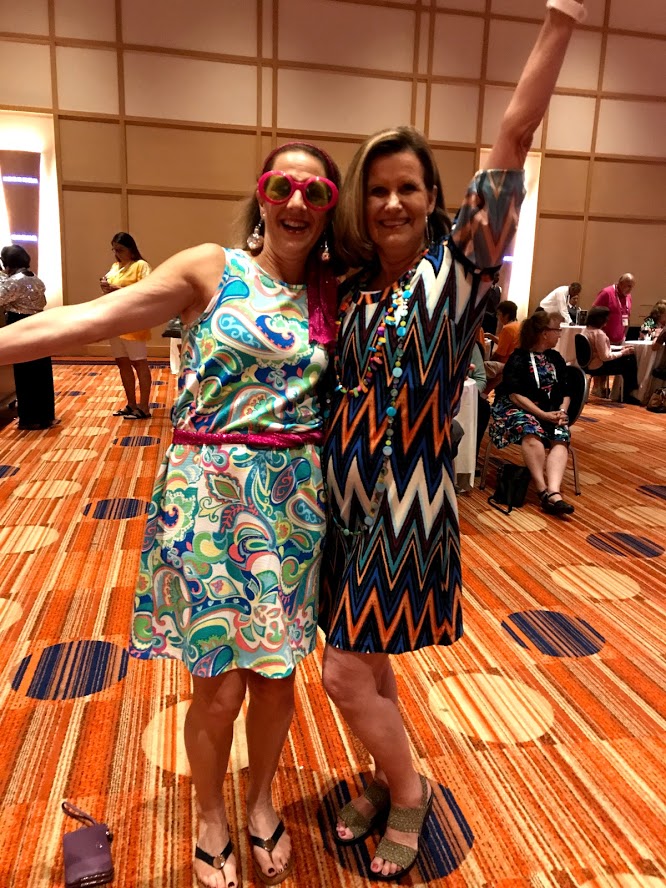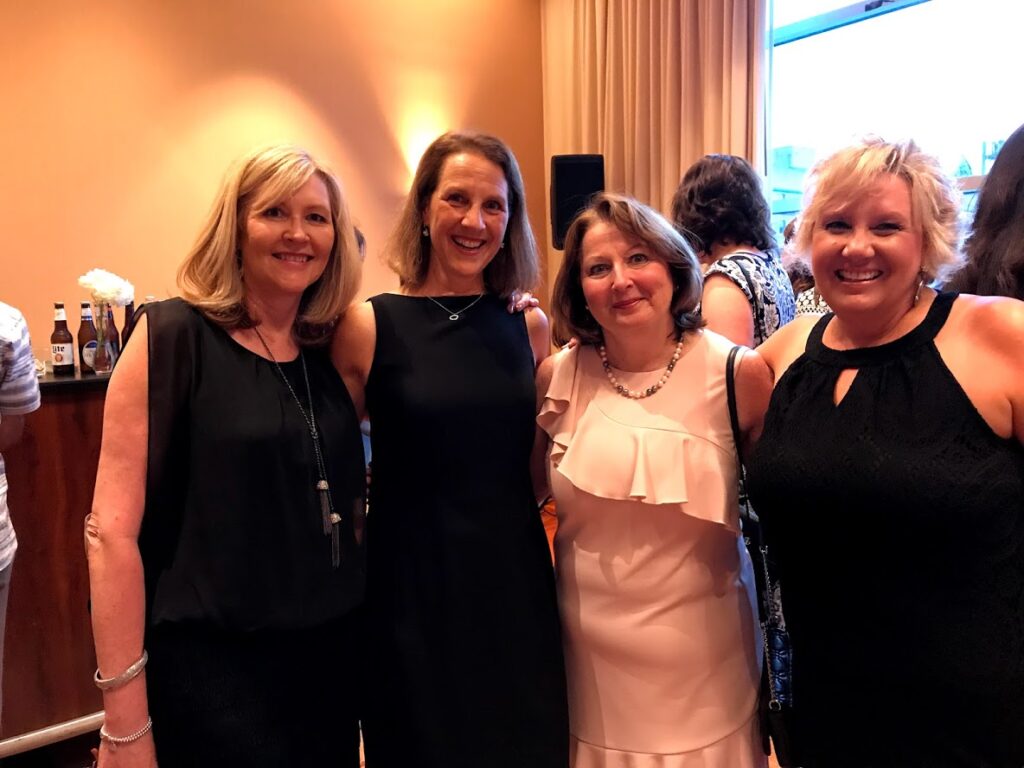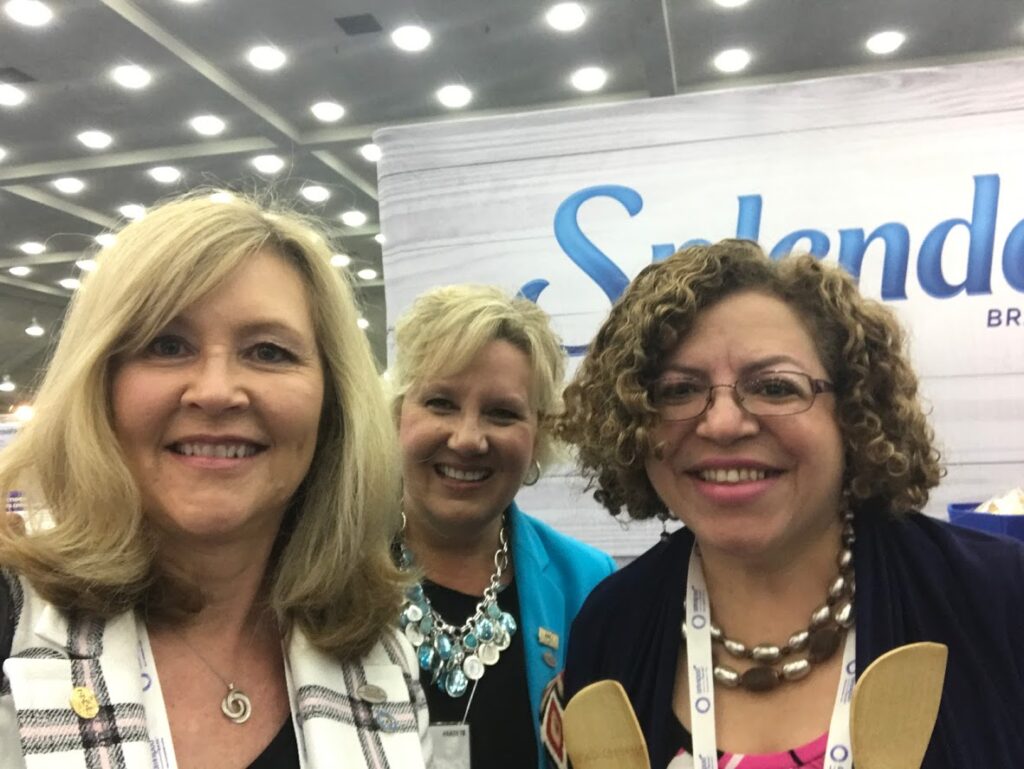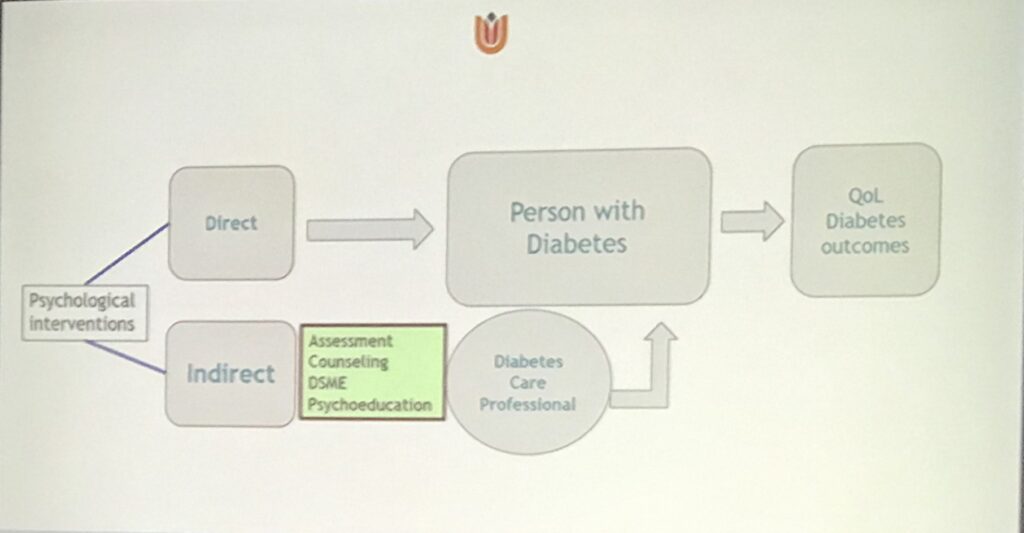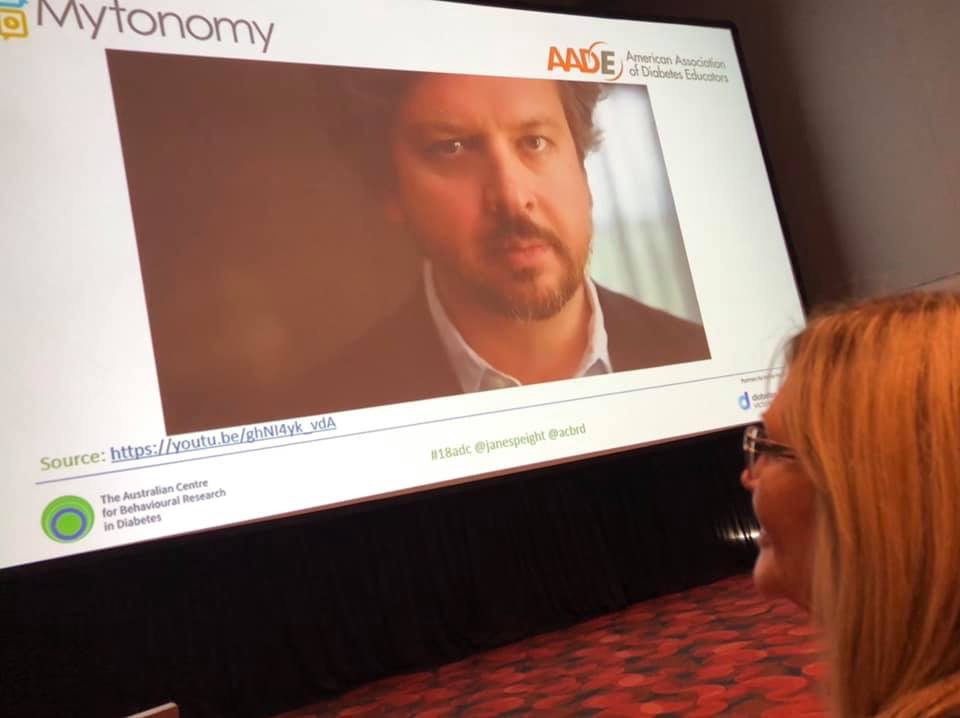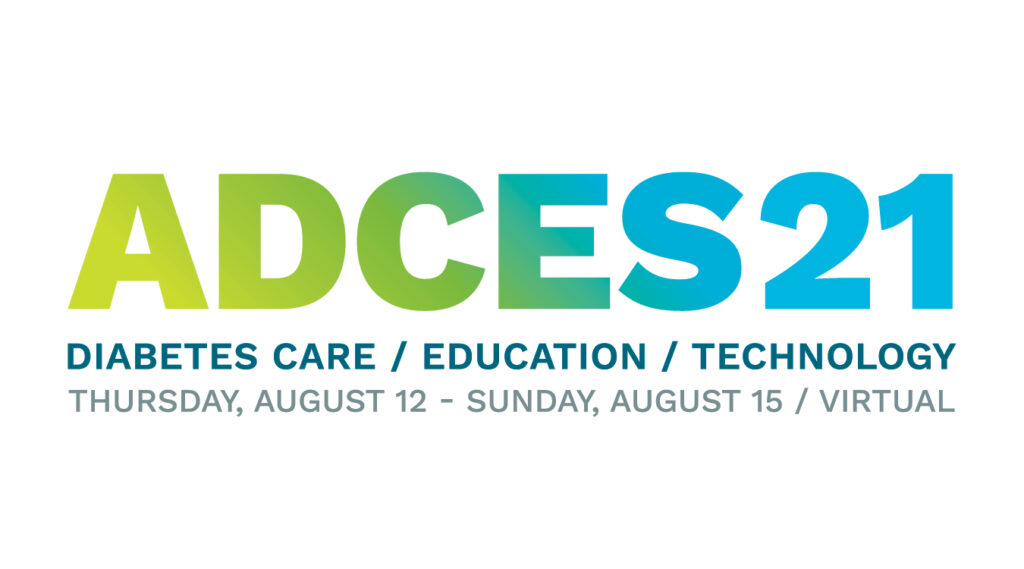
We hope your summer has been going well! We’ve been busy with work and spending time with family. Here @AFreshPOVforYo we are getting excited for the upcoming ADCES21 Virtual conference. For those of you that are attending, we have highlighted 13 presentations that are interesting to us and align with our thinking around behavior change, person-centered care, use of language, and of course use of technology. While there are many, many more sessions we plan to join, we are showcasing just a few!
We hope you’ll attend our session on Saturday 8/14/21 at 3:15 pm CT, S30 – Adopt A Fresh Point of View: A Solution-Focused Approach to the ADCES7 Self-Care Behaviors™. We presented two years ago at #AADE19 and shared an overview of what a solution-focused approach is all about. This year we’ll go a little farther and address the ADCES7 self-care behaviors. We’ll be sharing more info about our program in two weeks, so stay tuned for that!
While we wish we were connecting with our colleagues in person this August, we appreciate the great program put together virtually. We’re crossing our fingers that we’ll be grabbing a coffee or a glass of wine at ADCES22 in Baltimore next year!
Enjoy the meeting if you’re attending! We’ll share some of our thoughts about the meeting in a future post. We’ll also be Tweeting during the conference to share some pertinent information!
T02 – Help People With Diabetes Shift Their Mindset and Change Their Approach to Self-Care Behaviors
Thursday 8/12/21 10:35-11:05 am
In this session, presenters will show a framework for how diabetes care and education specialists can empower people with diabetes to take a new relationship approach to change their entire emotional experience with diabetes to improve self-care behaviors.
Learning Objectives:
At the completion of this activity, participants should be able to:
- Describe a framework for empowering people with diabetes to change their emotional experience with diabetes
- Describe how different types of relationships with diabetes impacts psychosocial and emotional functioning
- Utilize practical tools to help people change their relationship with diabetes
T10 – Achieve Better Outcomes by Using Individually Customized Messages
Marlisa Brown, MS, RDN, CDCES, CDN
Thursday, August 12, 2021
12:45 PM – 1:15 PM
This session will discuss how to achieve better results by combining smart goals, virtual programs, motivational interviewing, coaching, stages of change and behavioral strategies with customized messages designed individually to improve outcomes.
Learning Objectives:
At the completion of this activity, participants should be able to:
- Combine behavior change techniques with customized messaging designed to improve individual outcomes
- Embrace fears and help an individual to overcome barriers
- Identify a starting point and build an action plan
T17 – Collaborative Psychosocial Care for Youth With Diabetes
Thursday, August 12, 2021
1:20 PM – 1:50 PM
Psychosocial care for youth with diabetes presents challenges for the care team. This presentation will cover engagement and treatment strategies that optimize diabetes care in youth and collaborative care provided by diabetes care and education specialists and mental health professionals.
Learning Objectives:
At the completion of this activity, participants should be able to:
- Identify psychosocial care opportunities in youth with diabetes
- Select validated surveys and screening formats for identifying psychosocial issues in youth with diabetes
- Adopt concrete strategies to help youth with diabetes
T18 – Language in Diabetes Care From a Personal and Professional Perspective
Lauren Plunkett, RDN, LD, CDCES
Thursday, August 12, 2021
1:20 PM – 1:50 PM
Living with a disease that focuses on numerical values and patterns can be physically and mentally exhausting. Presenters will examine statements that trigger sensitive emotions and how to replace them with optimistic, inspirational coaching.
Learning Objectives:
At the completion of this activity, participants should be able to:
- Collaborate with individuals to understand how they approach management of their diabetes
- Articulate optimistic coaching methods to encourage individuals to live in partnership with diabetes
- Reframe the standard clinical approach to a perspective that focuses on the individual experience
T27 – Diabetes Stigma: Causes and Consequences for the Concerned Clinician
Thursday, August 12, 2021
3:25 PM – 3:55 PM
In this session, participants will learn how diabetes stigma at individual, interpersonal and structural levels intersect and can compound other forms of social marginalization, contributing to health disparities and poorer outcomes.
Learning Objectives:
At the completion of this activity, participants should be able to:
- Define diabetes stigma and name at least four dimensions of stigma
- Name pathways by which diabetes stigma is associated with medication taking among people with diabetes
- Promote diabetes pride in your practice and across the interdisciplinary diabetes care team
F04 – Too Good? The Potential Dangers of Perfectionism in Diabetes
Alexis Skelley, LISW-CP, LCSW, CDCES
Friday August 13, 2021
10:05 AM – 10:35 AM
This session will provide ways to recognize signs of unhealthy perfectionism in diabetes management, its medical and emotional risks, and tangible steps for helping individuals become more flexible, mindful and compassionate approach.
Learning Objectives:
At the completion of this activity, participants should be able to:
- Explain how perfectionism exhibits in diabetes management
- List possible consequences of perfectionism in people with diabetes
- Utilize strategies for preventing perfectionism pitfalls among people with diabetes
F17 – Practical Approaches for Addressing Behavioral Health Needs
Nicole Bereolos, PhD, MPH, MSCP, CDCES, FADCES
Friday, August 13, 2021
12:40 PM – 1:10 PM
Performing an assessment of behavioral health needs in individuals with diabetes can be limited by lack of training, resources and time. This session will provide practical tools, resources and real-world examples to augment learning in this area for diabetes care and education specialists.
Learning Objectives:
At the completion of this activity, participants should be able to:
- Identify the importance of addressing the behavioral health needs of PWD
- Demonstrate real-world applications of addressing behavioral health needs
- Utilize tools and resources appropriately to help address behavioral health needs in practice
D07 – Diabetes Care and Education Specialists and Behavioral Coaching For Mental Health: Creating Successful Partnerships
Korey Hood, PhD,
Brooke Benton, CDCES, MS, RD, LDN
Sunday, August 15, 2021
10:05 AM – 10:35 AM
Mental health issues can prove challenging to address for diabetes care and education specialists. This session will discuss how a behavioral coach can work alongside them to screen for mental health issues, recognize when individuals are struggling and connect them to available support resources.
Learning Objectives:
At the completion of this activity, participants should be able to:
- Highlight models that promote partnership between the diabetes care and education specialist and the mental health specialist
- Discuss the relationship between diabetes and mental health
- Incorporate screening tools and identify referring sources to collaborate with for providing mental health care
D19 – Diabetes Distress: An Overview of Prevalence, Assessment and Treatment
Lawrence Fisher, PhD, ABPP
Sunday, August 15, 2021
11:15 AM – 11:45 AM
This presentation will review the definition, clinical presentation, prevalence, assessment and treatment of diabetes distress due to its high prevalence and consistent links with self-management, making it an important target of clinical care.
Learning Objectives:
At the completion of this activity, participants should be able to:
- Perform a clinical assessment for diabetes distress
- Utilize recommended tools for clinical assessment of diabetes distress
- Discuss the treatment of diabetes distress
D25 – Optimize Support During Crises With Supplemental Peer Support
Anna Norton, MS
Sunday, August 15, 2021
11:50 AM – 12:20 PM
During the COVID-19 pandemic, peer support communities can serve as a supplemental resource for people with diabetes to maintain their mental health well-being. This session will provide strategies for diabetes care and education specialists to connect people with diabetes to these communities.
Learning Objectives:
At the completion of this activity, participants should be able to:
- Recognize the need for psychosocial support for people with diabetes during a crisis
- Provide suggestions and strategies for connecting people in their practice to peer support communities
- Identify reputable resources for diabetes management outside of the healthcare environment
Here are a few technology sessions you may be interested in as well.
T24 – Facebook Collaborative To Improve Diabetes Management
Lorena Drago, MS, RDN, CDN, CDCES
Thursday, August 12, 2021
2:50 PM – 3:20 PM
Sharing diabetes challenges and engaging with peers through Facebook groups helps people with diabetes make connections and learn/reinforce actionable self-care behaviors. This session will discuss how to use social media to teach, reinforce and support people with diabetes.
Learning Objectives:
At the completion of this activity, participants should be able to:
- Discuss how sharing diabetes challenges fosters connections and improves self-care habits
- Increase diabetes education support outside of the provider’s office using social media marketing strategies
- Create engaging social media content to obtain measurable results
ET07 – Powered by Dexcom: Continuous Glucose Monitoring Empowers Self-Management and Expands the Horizons for Connected Care
Moderator: Deborah Greenwood, PhD, RN, BC-ADM, CDCES, FADCES
Clinical Education, Dexcom
Panelists:
Malinda Peeples, RN, MS, CDCES, WellDoc
Denise MacKenzie, RPh, PharmD, CDCES, OnDuo
Aimée José, RN, CDCES, Steady Health
LaurieAnn Scher, MS, RD, CDCES, Fitscript
Lindsay Vettleson, RDN, CDCES, ACE-CPT, ACE-CHC, One Drop
Friday, August 13, 2021
10:45 AM – 11:30 AM
Join the discussion with DCES digital health experts that are leading the development and implementation of digital platforms to support people with type 2 diabetes to engage in personalized, data-driven, self-management and support coaches and HCPs to inform therapeutic decisions.
S04 – Technology Interventions in High-Risk Populations: The Identify, Configure, and Collaborate (ICC) Framework in Action!
Donna M. Rice, MBA, BSN, RN, CDCES, FADCES
Deborah A. Greenwood, PhD, RN, BC-ADM, CDCES, FADCES
Saturday, August 14, 2021
10:05 AM – 10:35 AM
This presentation will describe the ADCES technology framework Identify, Configure and Collaborate (ICC) using a program that delivers care with technology-enabled devices in high-risk communities.
Learning Objectives:
At the completion of this activity, participants should be able to:
- Describe the Identify, Configure, and Collaborate (ICC) framework and its application to high risk populations
- Discuss the role of the diabetes care and education specialist in evaluating technology interventions within their practice
- Discuss a technology assessment tool that can be utilized to assess specific technology needs
We’ll see you in two weeks with a more detailed description of our Saturday educational session!
We welcome anyone interested in our approach to Subscribe to our blog and we’ll email you when a new post is published!
If you are a health care professional and interested in learning more about our solution-focused practice and approach, when you subscribe to our blog, we’ll send you in return a FREE resource of 10 Solution-Focused Questions to start a solution-focused discussion with your clients.
Deb is employed by Dexcom, but her words and opinions in this blog are her own.
Tami is employed by the University of Kentucky HealthCare Barnstable Brown DIabetes Center, but her words and opinions in this blog are her own.
